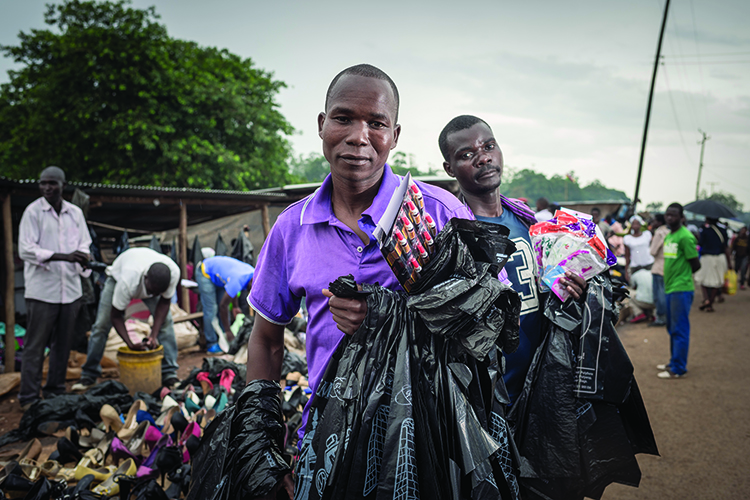A street vendor by trade, Mayeso Gwanda was arrested on his way to sell plastic bags and charged with being “a rogue and vagabond”, an offence frequently criticised for the way it is arbitarily enforced. The offence of being “a rogue and vagabond” exists in the same wording in the Penal Codes introduced during the colonial era in many African countries including Nigeria, Gambia, Zambia, Uganda, Botswana, Seychelles, and Tanzania. Mayeso was fortunate. With the support of the Centre for Human Rights Education Advice and Assistance (CHREAA) and the Southern Africa Litigation Centre (SALC), he challenged the validity of the rogue and vagabond law in Malawi, claiming it was unconstitutional. In February 2017, the High Court agreed with his claim that the offence was unconstitutional and invalid, violating his rights to dignity, freedom of movement, and security of person.

Credits: © Sven Torfinn/OSF
Country: Malawi
Mayeso Gwanda, Blantyre, Malawi
Theme:
Petty Offences
Human Rights
Use of Public Spaces
Petty Offences
Human Rights
Use of Public Spaces
People Groups:
Informal Workers
People experiencing Poverty
Informal Workers
People experiencing Poverty
